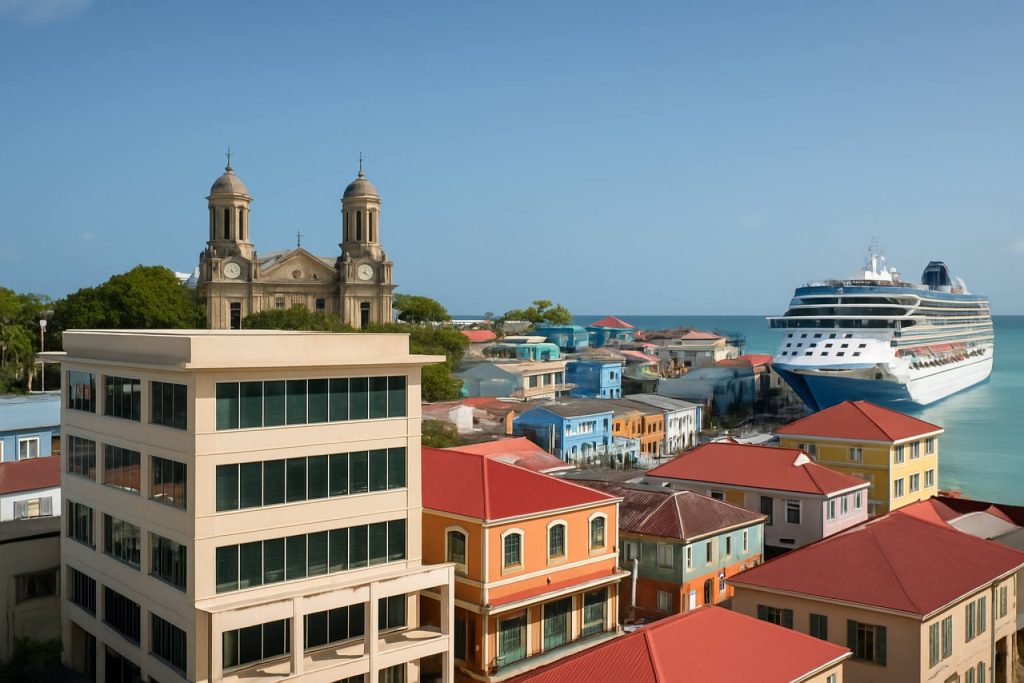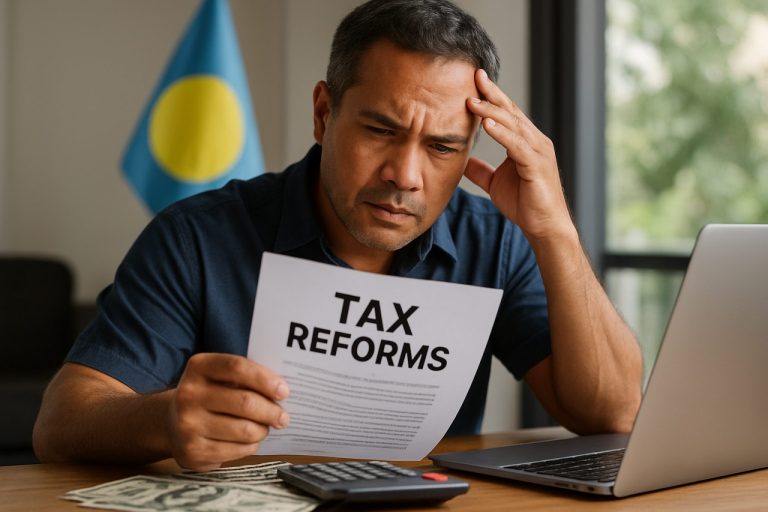
Table of Contents
- Executive Summary: Key Findings for 2025 and Beyond
- Market Overview: Current Landscape and Major Asset Classes
- Essential Economic Drivers Impacting Commercial Real Estate
- Legal & Tax Framework: Compliance, Ownership, and Incentives
- Key Statistics: Vacancy Rates, Rental Yields, and Transaction Volumes
- Government Initiatives and Regulatory Changes (Source: ab.gov.ag)
- Foreign Investment: Rules, Restrictions, and Opportunities
- Notable Projects & Developments Shaping the Future
- Risks, Challenges, and Mitigation Strategies for Investors
- 2025–2030 Outlook: Forecasts, Emerging Trends, and Expert Insights
- Sources & References
Executive Summary: Key Findings for 2025 and Beyond
The commercial real estate sector in Antigua and Barbuda is positioned for moderate growth in 2025 and the subsequent years, underpinned by sustained tourism recovery, infrastructure investments, and evolving regulatory frameworks. The government’s focus on economic diversification and the resurgence of the hospitality industry are driving demand for hotel, retail, and mixed-use developments. In 2024, the Ministry of Tourism reported that visitor arrivals surpassed pre-pandemic levels, catalyzing interest in new commercial projects and property upgrades to support expanding tourism and service industries (Ministry of Tourism, Antigua and Barbuda).
Key regulatory developments are shaping the market’s trajectory. The Non-Citizens Landholding Regulation Act governs foreign ownership, requiring non-citizens to obtain a license before acquiring property. Amendments and streamlined procedures have been introduced to facilitate international investment while maintaining compliance standards. Additionally, the Physical Planning Act establishes zoning, building codes, and environmental safeguards, influencing the approval process for large-scale commercial developments.
Recent infrastructure projects, such as the upgrades at V.C. Bird International Airport and expansion of the Deepwater Harbour, are enhancing logistics and accessibility, making Antigua and Barbuda more attractive for regional headquarters, logistics centers, and retail operators (Antigua and Barbuda Port Authority). In 2025, key statistics indicate a stable pipeline of hotel developments, commercial retail expansions, and office refurbishments, with government incentives under the Antigua and Barbuda Investment Authority further supporting project viability.
- Foreign direct investment in commercial real estate is forecast to rise by 8-10% in 2025, driven largely by tourism and hospitality projects.
- Compliance with local regulations—including environmental assessments and landholding requirements—remains a critical factor for project approval and timeline predictability.
- Risks include global economic volatility and climate resilience, prompting regulatory focus on sustainable practices in new commercial developments.
The outlook for commercial real estate in Antigua and Barbuda is cautiously optimistic. Strategic policy reforms, robust tourism recovery, and infrastructure upgrades are likely to sustain demand, while ongoing attention to regulatory compliance and environmental considerations will shape the sector’s long-term resilience and attractiveness to investors.
Market Overview: Current Landscape and Major Asset Classes
The commercial real estate market in Antigua and Barbuda continues to evolve in 2025, driven by tourism, foreign direct investment, and government initiatives to enhance the business environment. Key asset classes include hospitality and resorts, office spaces, retail centers, and mixed-use developments, each influenced by the country’s economic and regulatory context.
Tourism remains the mainstay of the country’s commercial property sector, with hotels and resorts dominating investment activity. The government’s ongoing “Digital Nomad Visa” program, launched to attract remote workers and new businesses, has increased demand for flexible office spaces and serviced apartments. Additionally, the hospitality sector has seen new projects and refurbishments as visitor arrivals rebounded post-pandemic, according to data from the Statistics Division of Antigua and Barbuda.
Retail real estate is also experiencing moderate growth, buoyed by rising consumer demand and the expansion of international brands. Several new shopping centers and retail parks are under development, particularly in St. John’s and near key tourist destinations. The commercial office segment is responding to shifts in work patterns, with a gradual pivot toward smaller, adaptable office spaces that cater to both local businesses and international investors.
The legal and regulatory framework for commercial real estate is governed by the Registered Land Act and the Land Development and Control Act. These laws outline processes for title registration, land use, foreign ownership, and construction permits. The Development Control Authority is the key body responsible for approving commercial property developments and ensuring compliance with zoning and environmental standards.
Incentives under the Investment Authority Act remain attractive, providing tax holidays and duty-free concessions to qualifying commercial projects, especially those tied to tourism and infrastructure. The government’s commitment to digital transformation and infrastructure upgrades further bolsters investor confidence.
According to the Statistics Division, construction activity and real estate transactions in the commercial sector showed steady growth in 2023–2024, with foreign investment accounting for a significant share of large-scale developments. Looking ahead to 2025 and beyond, continued focus on tourism diversification, regulatory streamlining, and sustainable development are expected to shape the trajectory of major asset classes within Antigua and Barbuda’s commercial real estate market.
Essential Economic Drivers Impacting Commercial Real Estate
The commercial real estate sector in Antigua and Barbuda is closely tied to the nation’s broader economic performance, driven primarily by tourism, foreign direct investment (FDI), and strategic government initiatives. In 2025, these essential economic drivers continue to influence demand, development, and regulatory oversight within the sector.
Tourism remains the cornerstone of Antigua and Barbuda’s economy, accounting for over 60% of GDP and a substantial portion of employment. Hotel developments, resorts, and hospitality-related commercial properties dominate new investment, supported by steady visitor arrivals and expansion of airlift from key markets. The government’s focus on attracting high-value tourism is reflected in ongoing upgrades to infrastructure, such as the expansion of the V.C. Bird International Airport and improvements to port facilities, which in turn stimulate demand for related commercial real estate, including retail, office, and logistics spaces (Government of Antigua and Barbuda).
Foreign direct investment is facilitated by the Citizenship by Investment Unit of Antigua and Barbuda, which channels significant capital into real estate projects. The real estate option under the Citizenship by Investment Programme (CIP) continues to be a major draw for international investors, particularly for high-end commercial and mixed-use developments. In 2025, the minimum real estate investment requirement remains at US$200,000, which supports the generation of new commercial property supply and the revitalization of existing assets.
Legal and regulatory compliance is governed by the Non-Citizens Landholding Regulation Act, requiring non-citizens to obtain a landholding license for property acquisitions, with specific provisions for commercial transactions. The Antigua and Barbuda Investment Authority Act further streamlines investment approval processes and incentives, including duty-free concessions and tax holidays for qualifying commercial projects. Compliance with planning and building regulations is overseen by the Development Control Authority, ensuring that commercial projects adhere to zoning, environmental, and construction standards.
Recent statistics indicate a moderate but steady increase in commercial real estate transactions and construction starts, buoyed by tourism recovery and infrastructure projects. The outlook for 2025 and the next few years is cautiously optimistic, with expectations of continued foreign investment, government support for diversification (especially in medical tourism and business services), and a stable regulatory environment fostering growth. However, the sector remains sensitive to external shocks, including global economic shifts and climate risks, necessitating ongoing vigilance and adaptive policy responses (Government of Antigua and Barbuda).
Legal & Tax Framework: Compliance, Ownership, and Incentives
The legal and tax framework governing commercial real estate in Antigua and Barbuda is shaped by a combination of statutory law, regulatory oversight, and government-led investment incentives. As of 2025, foreign and domestic investors must navigate several compliance requirements and statutory obligations to acquire, develop, or lease commercial properties on the islands.
Ownership and Acquisition
Non-citizens seeking to own commercial real estate in Antigua and Barbuda are required to obtain a Non-Citizen Landholding Licence prior to acquisition. The application process involves due diligence checks and a government fee, with the licence granting permission to purchase or lease land above a stipulated threshold. The key legislation in this context is the Non-Citizens Landholding Regulation Act, which aims to balance foreign investment with national interests (Government of Antigua and Barbuda). Corporate entities must also be registered locally to acquire property in the country.
Legal Compliance and Due Diligence
All commercial real estate transactions must comply with the Registered Land Act, which standardizes procedures for land registration, title verification, and transfers. The Financial Services Regulatory Commission (FSRC) provides oversight for real estate agents and developers, ensuring adherence to anti-money laundering (AML) and Know Your Customer (KYC) protocols, which have been tightened in response to evolving international standards.
Taxation Framework
Commercial property owners are subject to annual property tax, assessed on the market value of the land and improvements therein. Land transfer taxes (stamp duty) are payable at the time of property transfer, with rates varying for residents and non-residents. Corporate income derived from real estate activities is also taxable under the Income Tax Act. Investors should note recent digitalization of tax compliance systems by the Inland Revenue Department, which aims to streamline filings and payments.
Investment Incentives and Outlook
The government continues to promote commercial real estate investment through targeted incentives under the Antigua and Barbuda Investment Authority Act, including reduced import duties on construction materials and potential corporate tax holidays for qualifying projects. The commercial property sector is poised for moderate growth in 2025 and beyond, buoyed by hospitality, retail, and mixed-use developments aligned with the country’s economic diversification strategy. Ongoing regulatory reforms aim to enhance investor confidence and transparency, supporting a positive outlook for the sector.
Key Statistics: Vacancy Rates, Rental Yields, and Transaction Volumes
The commercial real estate sector in Antigua and Barbuda continues to reflect the country’s status as a tourism-driven economy, with hospitality, retail, and office spaces comprising the bulk of activity. As of mid-2025, the market exhibits moderate growth, shaped by ongoing investments in tourism infrastructure and the gradual diversification into other commercial sectors.
- Vacancy Rates: Recent data from the Statistics Division of Antigua and Barbuda indicates that average vacancy rates for prime retail and office properties in St. John’s, the capital, remain low—estimated between 6% and 9%. Hospitality-related commercial properties, such as restaurants and resort-adjacent retail, report even lower vacancy, buoyed by recovering tourism flows. Industrial and warehousing segments, while smaller by volume, maintain vacancy rates below 10%, reflecting steady demand and limited new supply.
- Rental Yields: According to the Antigua and Barbuda Investment Authority, gross rental yields for commercial spaces range from 5% to 8% annually, depending on location and asset class. Prime retail properties in central St. John’s command yields at the upper end, while secondary office and mixed-use spaces typically yield 5-6%. Hospitality sector yields, particularly in franchise or branded hotels, can exceed 8% due to high occupancy and premium rates, especially during the peak tourism season.
- Transaction Volumes: Transaction volumes in 2024 and into 2025 have remained stable, with a slight uptick in hotel and mixed-use developments. Data from the Antigua and Barbuda Land Registry shows a total of 56 significant commercial property transactions in 2024, compared to 49 in 2023. The majority of these transactions involved properties in tourism zones or those benefiting from incentives under the Antigua and Barbuda Investment Authority Act, which continues to attract both regional and international investors.
Looking ahead, vacancy rates are expected to remain stable or decline slightly as planned resort and mixed-use developments reach completion by 2026–2027. Rental yields should hold steady given sustained demand, though global economic headwinds may moderate growth. Transaction volumes are projected to increase modestly as government policies continue to encourage tourism-related and diversified commercial investment.
Government Initiatives and Regulatory Changes (Source: ab.gov.ag)
The Government of Antigua and Barbuda has demonstrated a proactive approach to shaping the commercial real estate sector through a series of initiatives and regulatory changes in recent years, with several significant developments expected to influence the market through 2025 and beyond. The government’s overarching goal is to foster sustainable economic growth, attract foreign direct investment, and ensure compliance with international standards.
A key legislative advancement was the continued refinement of the Non-Citizens Landholding Regulation Act, which governs the acquisition and ownership of commercial property by non-citizens. The Act requires non-citizens to obtain a license before purchasing or leasing land, a process overseen by the Cabinet. In 2024, the government streamlined application procedures and adjusted fee structures to enhance transparency and efficiency, aiming to make Antigua and Barbuda more attractive for international investors without compromising regulatory oversight (Government of Antigua and Barbuda).
Compliance with anti-money laundering (AML) and counter-financing of terrorism (CFT) requirements remains a core priority. The Financial Services Regulatory Commission (FSRC) and the Office of the National Authorising Officer have maintained strict monitoring of real estate transactions, with new digital reporting mechanisms introduced in 2023 and updates anticipated in 2025 to align with evolving global standards (Financial Services Regulatory Commission).
The government’s focus on sustainable development is reflected in the 2024 update to the Physical Planning Act, which introduced more rigorous environmental and zoning requirements for new commercial developments. Investors and developers must now submit detailed impact assessments, and compliance inspections have increased. The Development Control Authority (DCA) has also launched an online portal to expedite application reviews and provide greater transparency in the permitting process (Development Control Authority).
In terms of market outlook, government incentives for hotel, resort, and commercial mixed-use developments are expected to continue driving growth in the sector, with special economic zones and investment concessions playing a pivotal role. However, authorities remain vigilant regarding compliance and due diligence, particularly with regard to beneficial ownership and land use. These measures position Antigua and Barbuda to balance market dynamism with regulatory integrity as the commercial real estate sector evolves through 2025 and the coming years (Ministry of Legal Affairs, Public Safety and Labour).
Foreign Investment: Rules, Restrictions, and Opportunities
Antigua and Barbuda has positioned itself as a receptive jurisdiction for foreign investment in commercial real estate, with a legal framework tailored to encourage external capital while safeguarding national interests. Foreign investors are permitted to acquire, lease, or develop commercial properties, subject to compliance with local regulations. A pivotal statute governing this process is the Non-Citizens Landholding Regulation Act, which mandates that non-citizens—including companies controlled by non-citizens—must obtain a Non-Citizens Landholding Licence to own land, including commercial real estate. The licence process requires disclosure of the property’s intended use, source of funds, and beneficial ownership, supporting transparency and anti-money laundering objectives (Government of Antigua and Barbuda).
To further facilitate foreign investment, Antigua and Barbuda’s Citizenship by Investment Programme (CIP) permits investors to qualify for citizenship through sizable real estate projects approved by the Cabinet, including hotels, resorts, and commercial complexes. The minimum investment threshold is currently set at US$400,000 for joint investment in approved real estate, and the programme has catalyzed the development of several high-profile tourism and hospitality assets (Citizenship by Investment Unit).
Commercial leases by foreign entities do not require a landholding licence for terms shorter than five years, but longer leases or outright purchases trigger licensing requirements. The government periodically reviews and can update the list of restricted zones—such as coastal or ecologically sensitive areas—where foreign ownership is subject to additional scrutiny or outright prohibition. Compliance with environmental and planning regulations is overseen by the Department of Environment and the Ministry of Agriculture, Lands, Housing and the Environment, ensuring that development aligns with national sustainability goals.
In 2024, the commercial real estate sector showed steady demand, with hotel occupancy and retail space inquiries rebounding post-pandemic, especially in St. John’s and the northwestern coast. According to government data, foreign direct investment (FDI) inflows reached approximately US$150 million in 2023, with a significant share attributed to commercial real estate transactions (Statistics Division, Government of Antigua and Barbuda).
Looking ahead to 2025 and beyond, the outlook for foreign investment in commercial real estate remains robust, driven by continued tourism recovery, government incentives, and infrastructure projects such as port expansions. However, investors should monitor evolving compliance standards—especially concerning anti-money laundering, beneficial ownership disclosure, and environmental impact—as regulatory authorities are expected to tighten oversight in line with international best practices (Financial Services Regulatory Commission).
Notable Projects & Developments Shaping the Future
Antigua and Barbuda’s commercial real estate landscape is undergoing significant transformation as a result of several high-profile projects and evolving regulatory frameworks. Key developments in 2025 and the near future are expected to further integrate the nation into global tourism and business networks, while ensuring compliance with both local and international standards.
One of the most prominent projects is the continued expansion of the V.C. Bird International Airport, which serves as a critical gateway for tourism and commerce. The government’s investment in new terminal facilities, logistics centers, and commercial retail spaces adjacent to the airport is aimed at boosting passenger capacity and creating new business opportunities for local and foreign investors. The airport’s commercial precinct is expected to attract hospitality, retail, and office tenants, contributing to diversified real estate offerings.
Another major undertaking is the Antigua and Barbuda Special Economic Zone (ABSEZ), officially launched through legislative action and designed to attract international companies in sectors such as logistics, finance, and technology. The ABSEZ offers tax incentives and streamlined processes for development, requiring compliance with the Special Economic Zones Act, 2022. This framework mandates environmental impact assessments, anti-money laundering safeguards, and reporting requirements for participating companies, aligning the nation’s commercial real estate sector with global compliance standards.
Hotel and resort developments continue to be major drivers of commercial construction. Projects such as the Royalton Chic Antigua and the expansion of the Sandals Grande Antigua Resort represent significant foreign direct investment. These projects are subject to the Antigua and Barbuda Investment Authority Act, which governs incentives and compliance obligations for large-scale developments.
Recent statistics from the Statistics Division of Antigua and Barbuda indicate sustained growth in commercial property transactions, with 2023 data showing a 12% year-on-year increase in new commercial property registrations, a trend expected to continue through 2025 as infrastructure projects mature.
The outlook for commercial real estate in Antigua and Barbuda is robust, with ongoing public-private partnerships, strengthened regulatory oversight, and an emphasis on sustainable development. The government’s strategic focus on tourism, logistics, and international finance positions the sector for continued expansion, while compliance with international standards is poised to enhance investor confidence and long-term viability.
Risks, Challenges, and Mitigation Strategies for Investors
The commercial real estate sector in Antigua and Barbuda presents a mix of opportunities and risks for investors, influenced by the nation’s regulatory environment, economic dynamics, and evolving global trends. Understanding these risks and implementing effective mitigation strategies is essential for sustainable investment in 2025 and the coming years.
Key Risks and Challenges
- Regulatory and Compliance Risk: Investors must navigate a legal framework governed by the Government of Antigua and Barbuda, including the Registered Land Act and the Non-Citizens Landholding Regulation Act. Non-citizens face restrictions on land ownership and must obtain appropriate licenses, which can delay transactions and add administrative complexity. Failure to comply may result in fines, forfeiture, or invalidation of property rights.
- Economic Volatility: The commercial real estate market is sensitive to the performance of key sectors, particularly tourism. Global economic shocks, natural disasters, or downturns in tourism can adversely affect occupancy, rental yields, and asset values. As of 2025, economic forecasts remain cautiously optimistic but highlight vulnerability to external shocks (Statistics Division Antigua and Barbuda).
- Environmental and Climate Risks: Antigua and Barbuda is susceptible to hurricanes and rising sea levels, posing risks to commercial properties, especially those in coastal areas. Investors must account for potential damages, insurance costs, and business interruptions (National Office of Disaster Services).
- Due Diligence and Title Security: Issues such as unclear land titles, boundary disputes, or fraudulent documentation can complicate acquisitions. Comprehensive due diligence and title verification are vital (Government of Antigua and Barbuda).
Mitigation Strategies
- Engage qualified local legal counsel to ensure compliance with property laws, licensing requirements, and due diligence, minimizing regulatory and legal risks (Government of Antigua and Barbuda).
- Invest in comprehensive property and disaster insurance to mitigate financial losses from natural hazards (National Office of Disaster Services).
- Diversify commercial real estate portfolios across sectors and locations to reduce exposure to sector-specific and geographic risks.
- Monitor economic indicators and sectoral performance published by the Statistics Division Antigua and Barbuda to anticipate and respond to market shifts.
Looking ahead, investors in Antigua and Barbuda’s commercial real estate should maintain robust compliance practices, proactive risk management, and adaptability to legislative or environmental changes to protect their investments and capitalize on emerging opportunities.
2025–2030 Outlook: Forecasts, Emerging Trends, and Expert Insights
The commercial real estate sector in Antigua and Barbuda is poised for significant evolution between 2025 and 2030, shaped by a combination of legislative reform, infrastructure investment, and shifting global economic dynamics. Notably, the government continues to prioritize tourism-led development, with new hotel, resort, and mixed-use projects anticipated to anchor commercial activity and attract foreign direct investment.
Recent amendments to the Alien Landholding Regulation Act streamline the process for non-citizens to acquire commercial property, reducing bureaucratic barriers while maintaining due diligence and compliance standards. These reforms aim to increase transparency and ensure compliance with anti-money laundering (AML) protocols as outlined by the Financial Services Regulatory Commission. Developers and investors must adhere to rigorous Know Your Customer (KYC) and AML requirements, particularly in transactions exceeding certain thresholds or involving offshore entities.
Commercial real estate activity remains concentrated in tourism zones, such as St. John’s, and along the coast, where government-backed initiatives like the Ministry of Tourism's “Destination 2030” strategy seek to cultivate sustainable hospitality infrastructure. The expansion of VC Bird International Airport and ongoing port upgrades are expected to drive demand for logistics, retail, and office space, supporting ancillary services connected to travel and trade.
Key statistics from the Statistics Division of Antigua and Barbuda indicate that the construction sector, which includes commercial real estate, contributed approximately 8% to national GDP in 2023, with a projected annual growth of 4–5% through 2027. Foreign investment remains robust, supported by the country’s Citizenship by Investment Program, which continues to channel capital into real estate developments, subject to regulatory oversight.
Looking ahead, experts anticipate further growth in mixed-use developments—combining retail, office, and hospitality—as well as increased demand for flexible workspaces and eco-certified buildings. The government is expected to introduce updated building codes and environmental compliance standards, in line with commitments to climate resilience and sustainable development under the Ministry of Environment. Investors should monitor evolving regulations and compliance requirements, as well as opportunities arising from public-private partnerships and state-led infrastructure projects.
In summary, commercial real estate in Antigua and Barbuda between 2025 and 2030 is forecast to benefit from a stable legal framework, proactive government policies, and sustained tourism growth, though stakeholders must remain vigilant regarding compliance and environmental standards.



